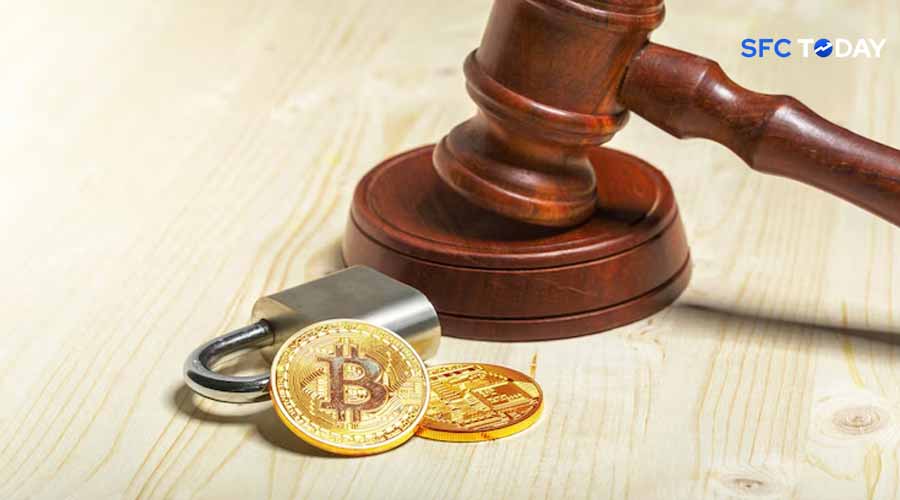Recent Court Cases Shaping Cryptocurrency Legislation: Ripple, Kraken, and Craig Wright
The legal landscape of cryptocurrency is rapidly evolving, with recent court cases significantly influencing regulatory frameworks worldwide. These rulings have addressed issues ranging from the classification of digital assets to the enforcement actions of regulatory bodies, thereby shaping the future of cryptocurrency legislation.
SEC v. Ripple Labs, Inc.
In July 2023, the Southern District of New York delivered a pivotal decision in the case of SEC v. Ripple Labs, Inc. The Securities and Exchange Commission (SEC) alleged that Ripple’s sale of XRP tokens constituted an unregistered securities offering. The court’s ruling was mixed: it determined that institutional sales violated securities laws, while sales to the general public did not. This distinction has profound implications for how cryptocurrencies are classified and regulated, influencing both current and future enforcement actions by the SEC.
SEC v. Wahi
The case of SEC v. Wahi marked the first insider trading investigation involving the cryptocurrency market. In this case, a former Coinbase executive, Ishan Wahi, along with his brother and a friend, faced charges of wire fraud and conspiracy to commit wire fraud. The court found that the defendants had misappropriated confidential business information by trading certain crypto assets. This ruling underscored the applicability of traditional securities laws to digital assets and highlighted the SEC’s commitment to enforcing these laws within the cryptocurrency space.
Craig Wright Contempt Ruling
In December 2024, the UK’s High Court found Australian computer scientist Craig Wright in contempt for breaching a court order that prohibited him from initiating or threatening legal actions related to Bitcoin. Wright, who has falsely claimed to be Bitcoin’s creator, Satoshi Nakamoto, faced a suspended 12-month prison sentence. This ruling emphasized the judiciary’s intolerance for frivolous claims in the cryptocurrency domain and reinforced the importance of adhering to court orders.
Kraken’s $8 Million Fine in Australia
The Federal Court of Australia imposed an $8 million fine on cryptocurrency exchange Kraken for failing to comply with design and distribution obligations. Kraken’s operator, Bit Trade, offered margin trading products without a target market determination, violating Australian financial regulations. This case highlights the necessity for cryptocurrency platforms to adhere to local regulatory requirements and the willingness of authorities to enforce compliance through substantial penalties.
State Lawsuit Against the SEC
In November 2024, eighteen U.S. states filed a lawsuit against the SEC, challenging its authority to enforce cryptocurrency regulations. The states argued that regulatory power should reside at the state level and contended that digital assets do not constitute investment contracts subject to federal securities laws. This legal action underscores the ongoing jurisdictional debate between federal and state authorities over cryptocurrency regulation and reflects the broader conflict between the SEC and the Commodity Futures Trading Commission (CFTC) regarding oversight responsibilities.
Supreme Court’s Stance on Administrative Authority
Recent Supreme Court rulings have signaled skepticism toward federal agencies’ expansive interpretations of their regulatory authority. In cases involving the Environmental Protection Agency (EPA) and the Federal Trade Commission (FTC), the Court has curtailed agency overreach. These decisions suggest that the Court may adopt a similar stance in future cases involving the SEC’s regulation of cryptocurrencies, potentially limiting the agency’s enforcement capabilities and prompting a reevaluation of its approach to digital asset regulation.
Implications for the Future of Cryptocurrency Legislation
These court cases collectively influence the trajectory of cryptocurrency legislation in several ways:
Clarification of Asset Classification: Rulings like SEC v. Ripple Labs provide guidance on distinguishing between securities and non-securities in the crypto space, aiding in the development of clearer regulatory frameworks.
Enforcement of Compliance: Cases such as Kraken’s fine in Australia demonstrate that regulatory bodies are prepared to enforce compliance rigorously, signaling to cryptocurrency platforms the importance of adhering to local laws.
Jurisdictional Debates: The lawsuit by eighteen U.S. states against the SEC highlights the ongoing debate over federal versus state authority in regulating cryptocurrencies, which could lead to significant shifts in the regulatory landscape.
Judicial Oversight of Regulatory Agencies: Supreme Court decisions limiting agency overreach may prompt regulatory bodies like the SEC to adopt more measured approaches in their enforcement actions, potentially leading to more balanced and clearly defined regulations.
As the cryptocurrency industry continues to evolve, these legal precedents will play a crucial role in shaping the regulatory environment, influencing how digital assets are perceived, utilized, and governed globally.







